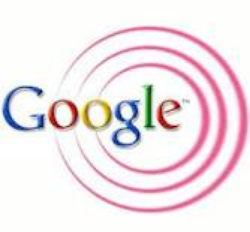In the United States, the judgment of 6 June 2012 considered that Google was free to use Java to build its own computer system, because the first were not patentable.
http://www.thejournalofregulation.com/spip.php?article1509

In the United States, a trial opposes Oracle, applicant, Google, defendant. Indeed, Google has developed its computer system Android from elements of Java. Oracle holds a series of patents on Java and considers that, in doing so; Google infringed it's right to intellectual property. The financial stake of the trial is considerable. The issue of principle also, since it is a question of whether mathematical algorithm of departure was patentable, or at the very least protected by copyright law. Third rank of attack, as presented to the jury, Oracle argued that, even if one were to consider that it was not "owner", Google infringed the general rule of "fair use", leading to the beginning of the general field of the responsibility. In the first instance, the judgment of 9 June 2012 dismissed all, believing that technique debated was not quite original but a technique allowing two computer languages pre-existing dialogue, which is not copyrightable, and that a third party may use. This case is exemplary of the innovation place, as the case law to be inserted into the markets and industries. Oracle will appeal.
© thejournalofregulation
Innovation is the heart of the regulation, which justifies that it comes sometimes, frustrates the law of the market, when it, by his immediacy, associated with the act of the market and the trade chain, does not anchor the duration, required by the research and development.
Therefore, either the law of competition, in its own ranks, retreated, through the multiple exceptions, individual or general, concerning the agreements and organizations for research and development, or regulation imposes innovation against the market. Indeed, market and intellectual property often engaged in a struggle in the theme well known, although questionable in its own terms, in that the property which allows the holder to choose sustainably its contractors by the licence, is a monopoly.
It remains that here the question here raised through the patentability of elements of Java, is the chain of innovations. It is here raised about information. There are the same problems about pharmaceutical innovation. Indeed, and the law here shows all his power, either law "lifts the foot", that is to say asserts that the property right does not exist, and the chain may take place, the value going to the following link, here Google.
It is known that it encourages innovation, since the development of the first effort will be made, but in reflex effect, economic agents with memory, educating themselves and being anticipatory, they will stop producing information, if they know that they will be stripped by anyone who will want to appropriate its value with the addition of a link element by an additional innovation.
The law, from the moment it reasoning (whether ex-ante or as here in ex-post) in property law, that is to say the right to exclude third parties, must keep the balance. If it had chosen the land of fair use, it would be that of money, therefore, calculating return on investment. But remaining on the field of the property law, through the defining issue of patentability, the law is the balance of the chain of innovations. In this, arguably that judges take into their hands in a direct way the industrial innovation.

your comment